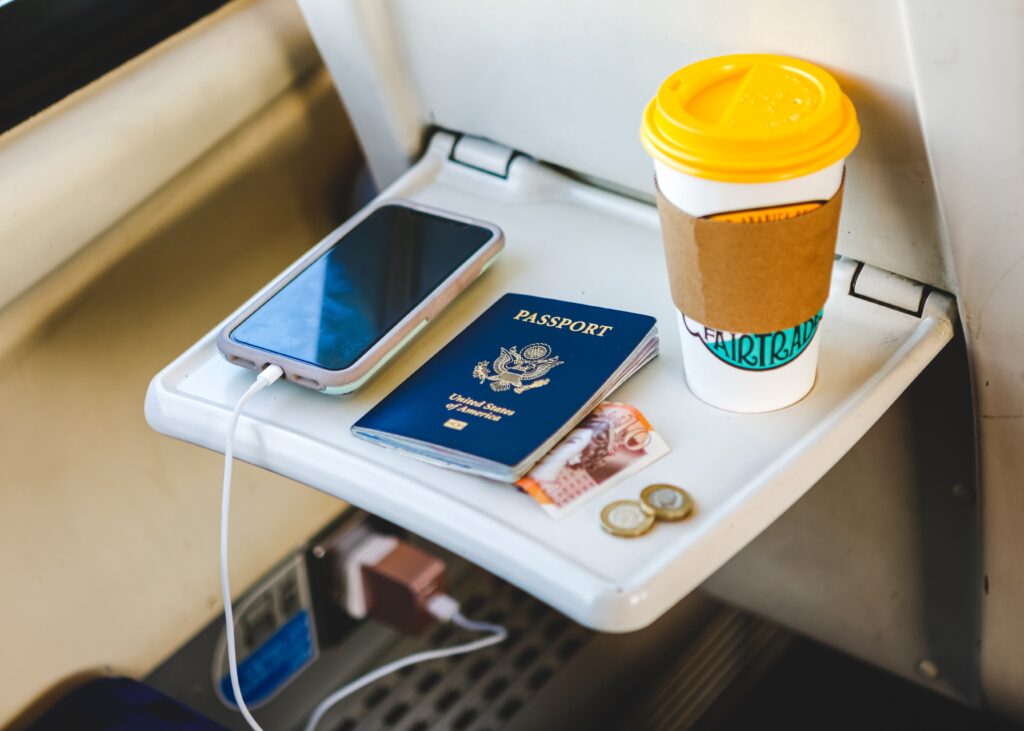Traveling offers connections, cultural immersions, and unique experiences that can widen a person’s perspective. These elements highlight why traveling is important for enhancing psychological flexibility, a concept used in Acceptance and Commitment Therapy (ACT). This flexibility involves being open to experiences and staying present while taking actions aligned with your values.
Being psychologically flexible helps you adapt to challenges and live a meaningful life. Travel provides a period that enables anyone, regardless of mental state, to remain grounded in reality due to rapid changes in setting, requiring mindfulness of new environments. If you’ve traveled to a foreign land before, you can likely relate to this experience.
The Transformative Power of Travel
Visiting unknown places often forces us to confront our assumptions and adapt to unfamiliar cultures and customs. This constant change fosters resilience, allowing us to navigate life’s uncertainties with greater ease. This adaptability is another reason traveling is important for personal growth.
The rapid environmental changes encourage mindfulness, as each moment demands our full attention and presence. Such experiences not only ground us in reality but also enrich our understanding of what truly matters to us, reinforcing our ability to live in alignment with our core values. This is one of the major reasons why traveling is important.
Personal Experience: An Alaskan Cruise
I recently embarked on an ocean cruise with Norwegian Cruise Line to Alaska. While I’m not the biggest fan of cruises due to the limited opportunities for cultural immersion, I accepted the free ticket from my family. On this floating castle, I witnessed firsthand why traveling is important for mental health. However, I also discovered there’s a dark side to traveling that deserves exploration.
Common Beliefs About Travel Benefits
Many people believe that traveling automatically leads to increased happiness and a sense of freedom, providing a break from daily routines. There’s also a common belief that traveling broadens the mind, offering insights into different cultures and ways of life. It can also strengthen relationships, as shared experiences create lasting memories with loved ones.
These beliefs contribute to the widespread appeal of exploring new destinations and underscore why traveling is important to many individuals. On social media, people often portray traveling as “truly living life” or “enjoying life at its best,” treating it as the sole purpose of life.

The Missing Context
While I agree with many of these statements, there’s an important element missing when we make such claims—context. Everyone has different values in life. Some common ones I’ve encountered in therapy sessions include:
- Adventures: to have new and exciting experiences
- Compassion: to feel and act on concern for others
- Caring: to take care of others
- Knowledge: to learn and contribute valuable knowledge
- Dependability: to be reliable and trustworthy
Another way to consider values is to imagine your future tombstone. What do you want it to say? Who do you want to be remembered as? The choices are yours.
The Importance of Aligning Travel with Personal Values
Looking at the list above, a person valuing compassion and knowledge might not benefit as much from traveling. However, someone prioritizing adventure would likely find traveling highly beneficial. Certain values, like knowledge and openness, can also be enhanced through travel.
Take a moment to reflect on who you want to be as a person. Will traveling take you closer to that ideal? If not, then traveling might not offer significant advantages for you. This consideration is crucial when pondering why traveling is important on a personal level.
The Potential Downsides of Travel
I believe traveling often does more harm than good. This may seem contradictory to my earlier praise, but it’s all about context. There are many variables, besides values, that we must consider.
A critical component is the financial burden. Will this trip negatively affect your current and future financial situation? If the answer isn’t a clear “no,” then the trip might not benefit you.
In counseling, I often see people make decisions based on uncomfortable feelings—trying to escape them. Overwhelmed by stress, fatigue, and other unpleasant emotions, they pack their bags to run. There’s high demand for tickets to Hawaii or Colorado among those wanting to get as far from Texas as possible.
The Hidden Costs of Travel
While a trip to Colorado might seem affordable at first glance, it’s essential to factor in all costs: travel, meals, lodging, and pet or child care. Suddenly, that trip doesn’t sound so budget-friendly.
Many leave the comfort of their homes to run away from their issues. However, eliminating discomfort doesn’t resolve problems; it often compounds them. Recall your last trip. You likely enjoyed being problem-free for the first few days. But as the vacation neared its end, you might have dreaded the piles of work and unexpected costs awaiting you.

The Post-Travel Blues
Trust me, the massive amount of work and money issues can ruin your trip. I overheard such a conversation during lunch on my second-to-last day of the cruise. It’s also something I’ve experienced personally. Taking seven days off to travel without working put a dent in my wallet.
Was it worth it? Probably not, despite the fun experiences I had with my wife. These moments are often short-lived. My interests lie in creating a long-lasting impact on society through writing, counseling, and investments. Traveling doesn’t enhance my values of knowledge, intelligence, and compassion.
The Importance of Independent Thinking
I encourage you to engage in independent thinking and determine what’s optimal for you rather than adhering to societal norms. Social media posts can skew your perception of what’s important. Don’t let that influence what you truly want your life to stand for.
The Social Media Trap
I recently wrote an article on how social media contributes to many mental health challenges, focusing on micro-boredom and comparison to others. The comparison element is particularly relevant when considering why traveling is important.
Ask yourself: Do you post negative aspects of your life on social media? Probably not. Therefore, all those wonderful travel posts you see are likely unrealistic. There are often hidden problems beneath each trip, as my clinical experience as a therapist confirms.
The Post-Vacation Reality
Interestingly, September is the busiest time for counseling offices. That’s when everyone returns from vacation and realizes how their lives are becoming more difficult. It’s a heartbreaking trend, but it’s the reality we live in.
On the other end of the spectrum, people who value freedom and adventure often thrive throughout a trip and don’t feel bogged down towards the end. They’re willing to sacrifice financial freedom for a different kind of liberation.

The Personal Side of Travel
It’s important to note that I do travel and enjoy it occasionally. The reason for this is my partner, who I love dearly. She enjoys astrophotography, so I support her in pursuing things that are important to her. It’s intentional and not an avoidance act.
During a recent trip to Alpine, TX, my wife participated in an astrophotography workshop. While setting up her camera, she captured a stunning, one-in-a-lifetime image by accident as she was learning how to adjust exposure. The yellow line you see that divides the milky way, the cloud of stars in the background, is a meteor. This experience highlights another aspect of why traveling is important: it can foster personal growth and shared experiences with loved ones.
Conclusion: Be Intentional About Travel
As you can see, the benefits of traveling are heavily contextual. It depends on the individual and what they want their lives to represent. Don’t let others determine whether something is beneficial for you. I encourage independent thinking and reflection on your specific situation.
Be purposeful and mindful of why you want to travel. Are you traveling for the love of knowledge? For adventures and experiences? Or are you leaving your country because you’re stressed and overwhelmed with everything in your life?
Be intentional! If you want to travel, do it because it aligns with the life you want to live. Don’t engage in experiential avoidance. Running away from discomforts will only bring more in the long run.
Understanding why traveling is important to you is crucial. It should align with your values and contribute positively to your life, not serve as an escape from problems. By approaching travel mindfully and intentionally, you can maximize its benefits and minimize its potential drawbacks.
Remember, the true value of travel lies not in the destinations you check off a list, but in how those experiences shape you and contribute to the life you want to lead. Whether it’s supporting a loved one’s passion, like my wife’s astrophotography, or pursuing your own interests, make sure your travels serve a purpose that resonates with your personal values and aspirations.




